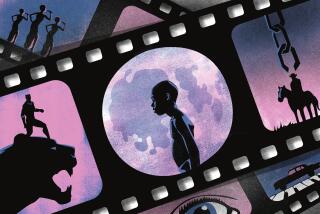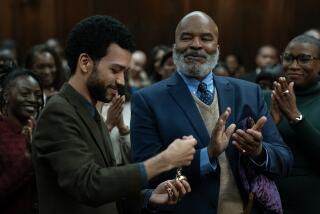TV REVIEW : When Racism Permeated Our Popular Culture
- Share via
The happy Mammy, the grinning Coon, the wide-eyed Pickaninny, the savage Brute, the faithful Uncle Tom and the carefree Sambo are cruel black stereotypes that have finally disappeared from America’s cultural mainstream.
But many viewers of the excellent “Ethnic Notions: Portraits of Prejudice” (tonight at 10 on Channel 28) are likely to be surprised or even shocked to learn how thoroughly these caricatures of black men, women and children permeated American popular culture from antebellum times through the rise of the Civil Rights Movement.
By 1941, says one scholar, these dehumanizing images--found in drawings, films, cartoons and advertising and reinforced by traveling minstrel shows and popular songs--had wormed their way into American life and had shaped our most gut-level feelings about race.
It’s impossible to deny the damage done to society by such stereotypes as those contained in such cartoons as “Uncle Tom’s Cabana” (made as late as 1947) and such movies as 1915’s “Birth of a Nation” (which Woodrow Wilson called “history written in lightning”), which included a scene of a savage black man chasing a frightened white virgin until she throws herself off a cliff.
“Ethnic Notions,” produced, directed and written with somber precision by Marlon Riggs, is a disturbing but absorbing 100-year history lesson that also effectively uses folklore, theater and song. With no rancor and considerable scholarship, it lays out a plausible if sometimes debatable sociopolitical explanation of how stereotypes once helped white society to justify slavery, segregation and even lynchings, and how the after-images of those stereotypes are still with us today.
Part of PBS’ celebration of Black History Month, “Ethnic Notions” is a sad commentary on how popular culture can reflect and encourage racism in a society that is founded on individual freedom. The hour is narrated by actress Esther Rolle (“Good Times”).
More to Read
The complete guide to home viewing
Get Screen Gab for everything about the TV shows and streaming movies everyone’s talking about.
You may occasionally receive promotional content from the Los Angeles Times.






